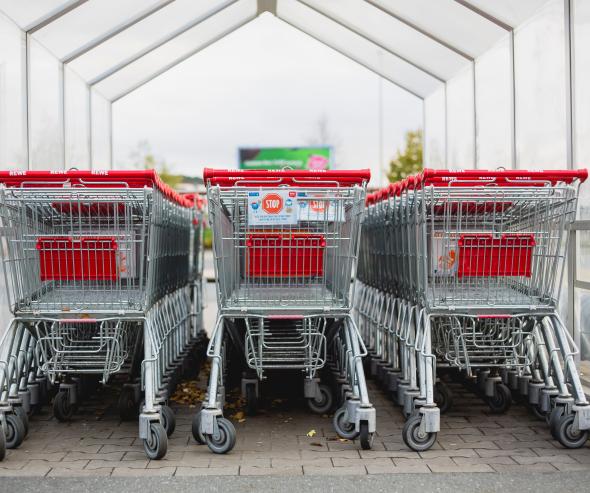27 September 2010: The retail sector,a priority for the Autorité de la concurrence

The Autorité de la concurrence has published today a communication reviewing its initiatives in the retail sector. This contribution follows the publication of a report by the European Commission and a public consultation intended to list the barriers hampering competition and diversity in this sector.
In its synopsis document, the Autorité de la concurrence recalls that this sector is key to the well-being of the French, in view of the weight of current consumer spending in households budgets and of the major impact that increasing prices may have on their purchasing power. It has therefore been one of the Autorité’s main priorities since its creation via the 4 August 2008 law on the modernization of the economy (LME).
Limited competitive dynamism justifies priority attention
The sector’s concentration is significant, whether nationally (the top four groups hold market shares of 65.5%) or locally. The sector continues to be characterized by the existence of various regulatory entry barriers. However, these characteristics are not enough to necessarily explain the insufficient competitive dynamism in the retail sector.
The Autorité has therefore committed to mobilizing all of the instruments made available by lawmakers in 2008. This monitoring and control action is intended to apply to the entire national territory and this is the reason why the Autorité applauds the legislative proposal that will create a national observatory for commercial equipment, which would help to gather the necessary market information needed to be able to uncover possible competition difficulties.
Two sector inquiries expected in the autumn
Before its transformation into the Autorité de la concurrence, the Conseil de la concurrence had already issued structuring opinions to the retail sector, notably with regard to commercial urban planning (opinion 07-A-12 of 11 October 2007) and to the prohibition of below-cost selling (opinion 04-A-18 of 18 October 2004).
Following on these opinions, that contributed to reforms intended to reduce entry barriers for newcomers likely to stimulate competition on the local level, the Autorité de la concurrence strongly developed its surveillance efforts for the retail distribution markets. If firstly targeted the overseas départements as a result of the special economic conditions in these départements (opinion 09-A-45 of 8 September 2009). It has since launched two sector inquiries on possible non-regulatory competition obstacles: the first relates to the possible presence of clauses that would inappropriately hinder the mobility of independent stores between various brand names, as well as the management of commercial real estate; the second concerns possible risks linked to the development, in France, of practices known as “category management ”1.
These sector inquiries, the first to be launched thanks to the initiative power provided to the Autorité by the LME, are currently in progress. They should lead to opinions sometime in the autumn.
Merger control focusing on operations likely to increase prices on the local level
Until the 2009 reform, only the largest transactions, such as the takeover of Promodès by Carrefour in 2000 or of Monoprix by Casino that same year, were subject to merger control.
At the request of the Autorité de la concurrence, the LME and the recent law on consular networks considerably lowered control thresholds, which allows the Autorité to examine far more operations in the retail sector. These operations did not necessarily have a significant effect on the national level, but may have considerable effects for consumers on the local level. Since the creation of the Autorité, nearly 40% of the 216 decisions issued with regard to mergers have involved this sector.
Fines targeting anticompetitive practices that are harmful to consumers
In the presence of behaviours likely to have negative consequences on consumers and on the economy, monitoring and consulting nevertheless do not constitute appropriate responses. It is for this reason that the Autorité has sanctioned some 20 anticompetitive practices or cartels and dominant position abuses in the retail sector in recent years.
Two cases of collusion between competitors notably resulted in the application of relatively high fines, given their severity and the damage caused to the economy: relative to toys in 2007 (decision 07-D-50 of 20 December 2007 / 37 million euros fine) and to videocassettes in 2005 (decision 05-D-70 of 19 December 2005 / 14.4 million euros). The Autorité is currently investigating several cases involving consumer goods.
In the coming months, the Autorité will continue to examine all structural and behavioural obstacles to the stimulation of competition in the mass retail distribution and trade sector, and to place this sector at the heart of its efforts, for the benefit of consumers.
1 This type of contract, which is in a developing trend, allows a distributor to rely on the recommendations of one of its suppliers, known as the "category captain" for certain aspects of its commercial policy relative to a given category of products (for example, dairy desserts, biscuits, etc.).
> Please refer to the response to the European public consultation
